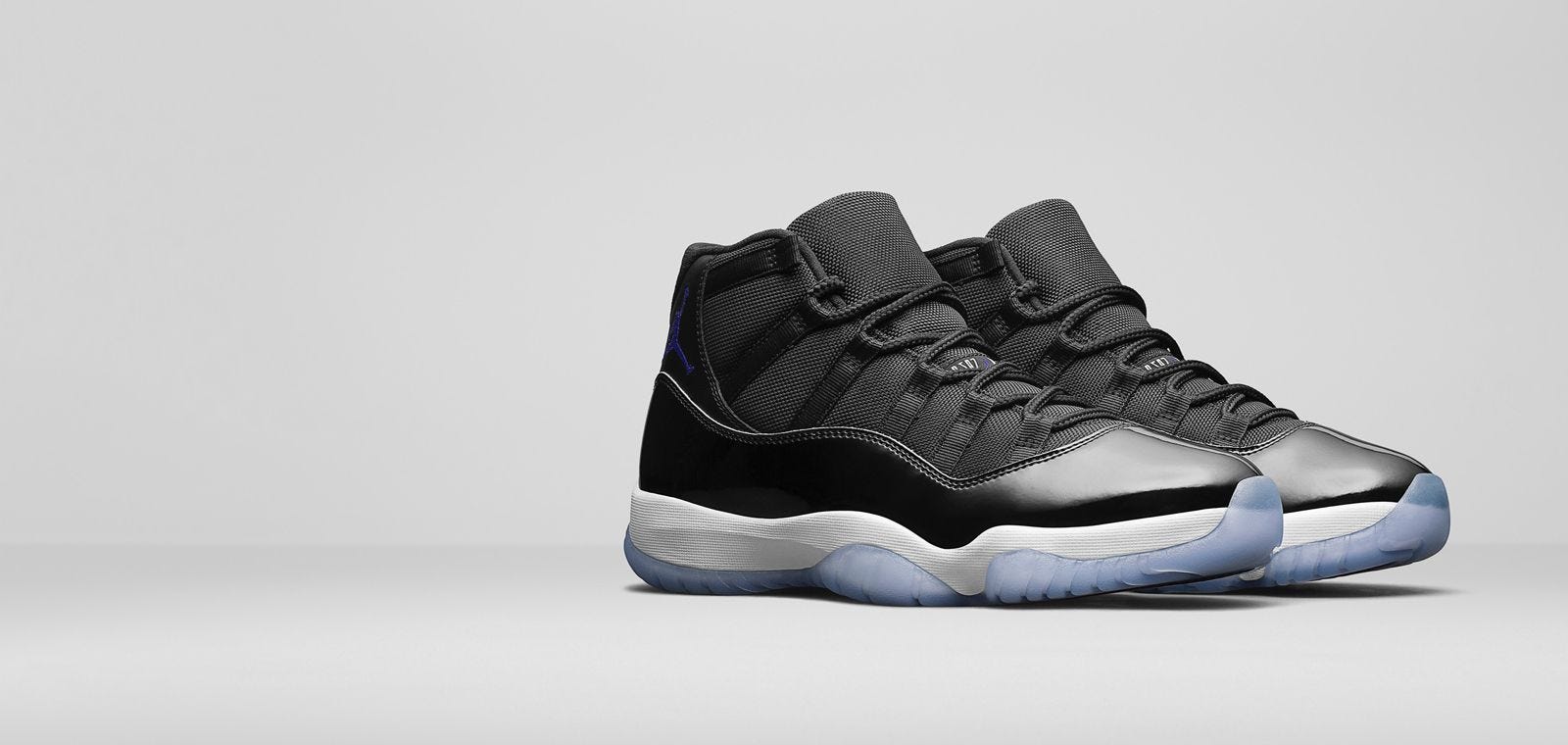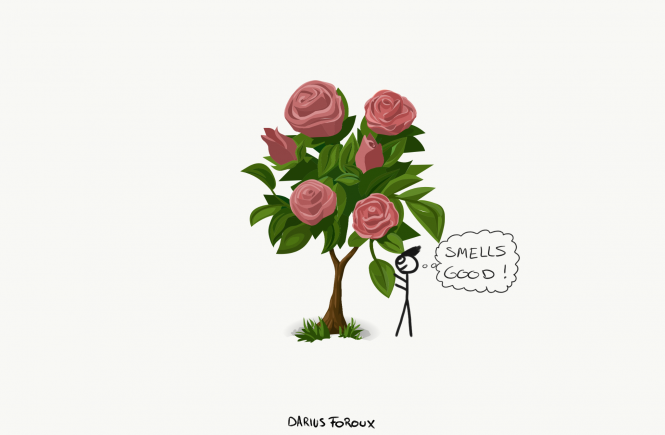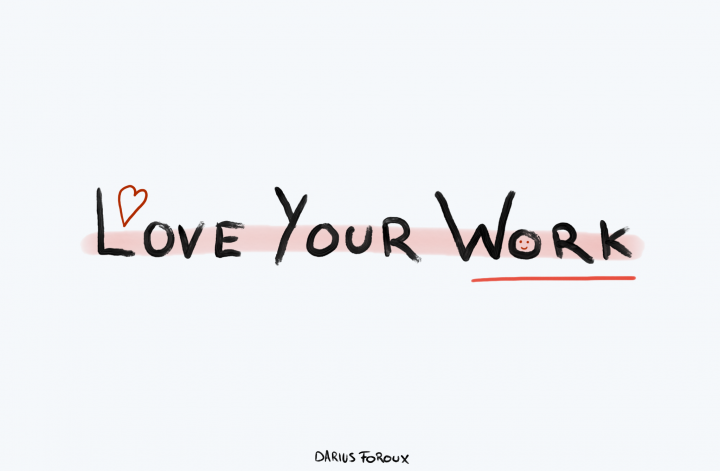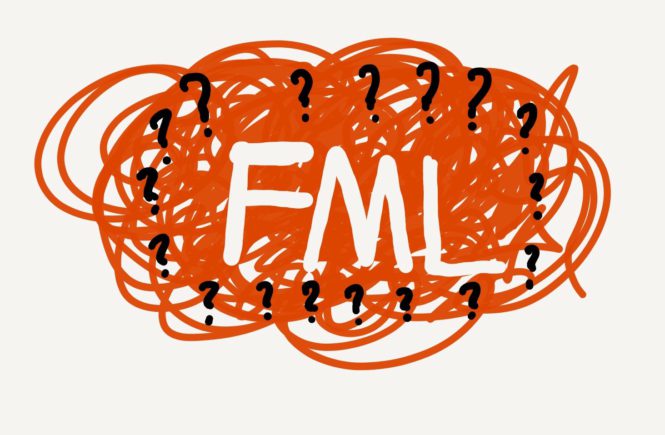Over the past three years, I’ve moved house close to a dozen times. Most people experience moving house as a stressful event. Initially, I was no different. But I’ve learned to love it for one reason: It forced me to think about my possessions.
Too much stuff makes moving and living complex. And I like the opposite.
When I moved to London from The Netherlands in 2014, it was the first time I took the time to get rid of almost everything I owned.
No, I didn’t get rid of my things because I read The Life-Changing Magic of Tidying Up or watched something about Minimalism. I just did it for practical reasons. Mainly because of:
- You can’t carry everything you own with you
- You own a lot of shit you don’t use
You see, it’s not about ‘needing’ things. Because let’s be honest, do you really need ten pairs of shoes? Or how about those two coffee machines that are sitting on your kitchen counter? And that iPad that’s catching dust on your desk?
I’m not perfect at that department. A while back I bought a pair of Jordan 11 Space Jam. It was the 20th-anniversary edition of that shoe. When the original came out in 1996, I wanted that shoe so bad. In fact, everyone in my basketball team idolized that shoe for years. And for years, I couldn’t buy it because we didn’t have the money for it.

But when Nike decided to relaunch it in December 2016, I knew it: “This time I’m buying those shoes!”
It’s a sentimental thing. I could have easily said to myself that I don’t ‘need’ those shoes. That they are way too expensive. And that I’m probably never going to wear them.
All those things are true. To date, I’ve worn those shoes three times. I’ve spent more time looking at them than actually walking in them. I even displayed the box for a while in my office. Does that make me a mindless consumer? Sure. But it’s more than that. The shoes represent a story.
The story of a young kid who wanted something but could never get it because they had no money. And when he grew up, made his own money, he decided to buy it because he could. Sometimes, you don’t need another reason.
But I don’t have many wants like that. Because it’s not about what you own, it’s about what you want. And if you want less, you own less. Stoic philosopher Epictetus said it best:
“Wealth consists not in having great possessions, but in having few wants.”
Say goodbye to ‘things’
Over the years, I’ve become more comfortable with saying goodbye to things: To memories, dreams, goals, people, etc.
I think that saying goodbye is a natural part of life. Nothing lasts forever.
You need to get used to it. When my grandmother passed away two years ago, I was surprised with the calm demeanor of my grandfather. I asked him: “Are you not upset?” He said he was sad. But he also told me that as you age, you’re forced to say goodbye to people you love.
That’s not something anyone likes. But it’s a part of life. And as weird as it sounds, you get more comfortable with it.
In The Netherlands, the most used platitude is, “Het leven gaat verder.” Which translates to, “Life moves on.”
And that’s reality.
However, we don’t accept that reality easily. Most of us gradually learn that no matter what happens, you have to move on. But you can also train yourself to become better at saying goodbye to things.
The easiest way to do that is to rid yourself of material possessions. I’ve found that you can get very attached to stuff that doesn’t live. It doesn’t matter whether it’s a shoe or a person, we can get attached to both.
But in life, we don’t have any possessions. I recently stumbled upon a quote from Deborah Ellis, an author with a passion for telling stories about children in developing countries, on Goodreads:
“Nobody really owns anything. We give back our bodies at the end of our lives. We own our thoughts, but everything else is just borrowed. We use it for a while, then pass it on.
Everything.”
That doesn’t mean you can’t accumulate things over a lifetime. That’s not realistic, and most importantly, it’s boring. Who says you can’t have more than one pair of shoes? Most of my friends have children, and one of them recently said this after he read something about minimalism:
“The idea of owning a few things sounds nice. But it doesn’t work when you’re married and have two kids.”
Most of us are too busy living life to think about our possessions every single day. I also don’t think it’s worthwhile to always think about things like:
- “Should I buy this?”
- “Do we need this?”
That requires too much brainpower. Instead, I prefer to do my work, spend time with my friends and family, or go to the gym. I don’t want to think about possessions too much. When I see something I truly like, I buy it—because that doesn’t happen often, that strategy works well. The good thing is that I don’t have to overthink things.
Love it? Go for it.
I only have three rules for de-cluttering life:
- Don’t buy shit you can’t afford.
- Live below your means.
- And get rid of things when they take up the space you need.
That’s it. Last week I donated a bunch of clothes and shoes to charity. I also had some old electronics that I brought to a place that recycles that stuff. And I also threw a lot of useless things I don’t need in the trash.
I have to tell you, it feels good. If I don’t use something for a long time, it goes out the door. But decluttering your life is more than getting rid of unnecessary stuff. It’s about freeing up space in your mind.
Valuable space that you can use for doing useful and meaningful things. Things that you’re procrastinating.
Decluttering is also an exercise to cope better with loss. Somehow, we have to keep reminding ourselves that everything is borrowed.
So, what’s catching dust at your home? It’s time to roll up your sleeves, grab it by the head, throw it out and say: “Goodbye. I never owned you anyway.”




